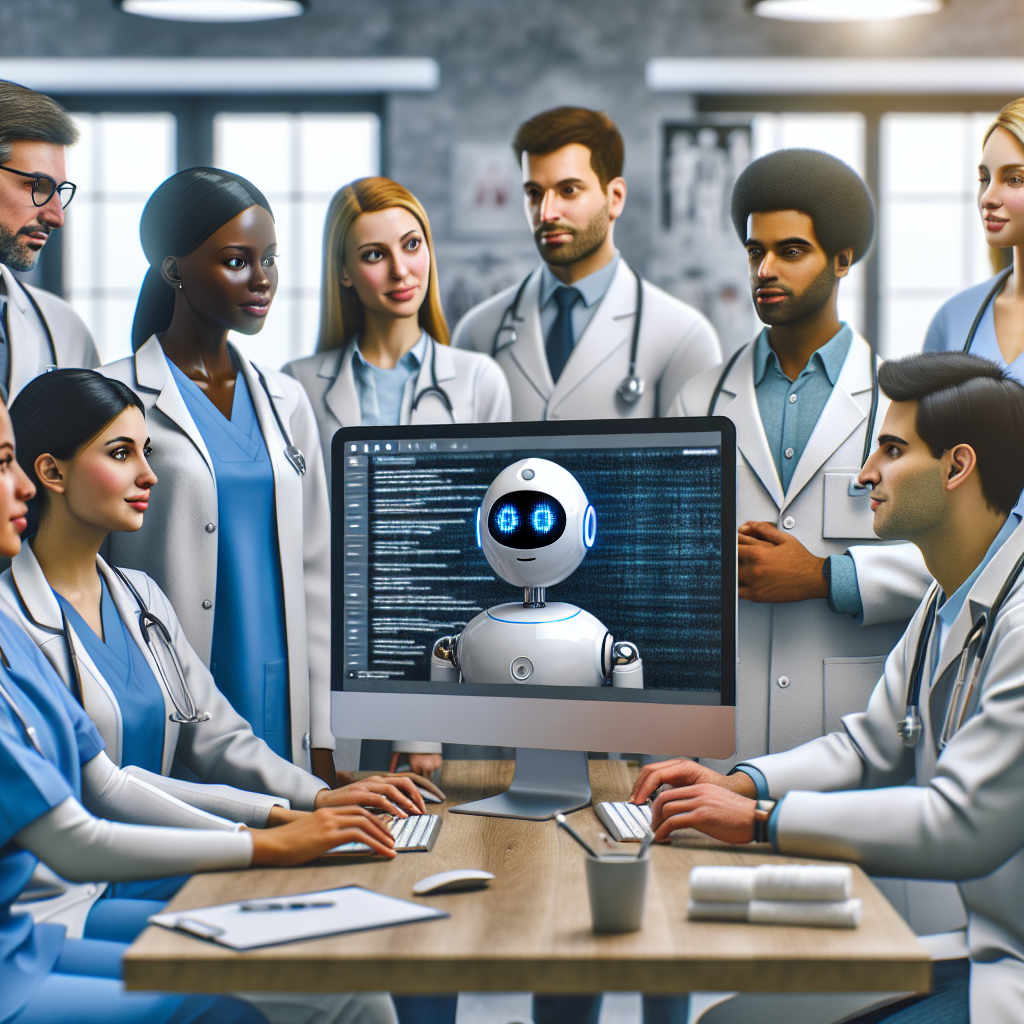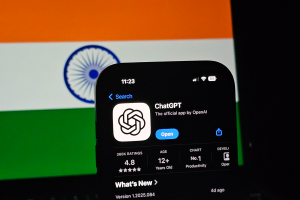How AI Chatbots Are Revolutionizing Medical Professionals

In recent years, AI chatbots have emerged as a transformative tool in various industries, and the medical field is no exception. By leveraging sophisticated algorithms and natural language processing, these intelligent bots are revolutionizing how healthcare providers interact with patients and manage tasks. Whether it’s streamlining administrative duties or enhancing patient care, the applications of AI chatbots in medicine are vast and continually evolving.
For medical professionals, integrating AI chatbots can lead to significant improvements in efficiency and patient satisfaction. These bots can handle a myriad of tasks such as scheduling appointments, providing preliminary diagnoses based on symptoms, and even offering mental health support. The ability to access reliable information and assistance 24/7 is a game-changer for both patients and healthcare providers.
Imagine a scenario where routine administrative tasks like appointment reminders, prescription refills, and patient follow-ups are managed by an AI chatbot. This not only frees up valuable time for medical professionals but also ensures that patients receive timely and accurate information. The result is a more streamlined healthcare experience that benefits all parties involved.
Ready to dive deeper into the world of AI chatbots and their impact on the medical field? Learn AI Chatbot Course today and discover how you can harness the power of AI to revolutionize your practice.
Enhancing Patient Care with AI Chatbots
One of the most significant advantages of AI chatbots for medical professionals is their ability to enhance patient care. These intelligent systems are designed to provide round-the-clock support, ensuring that patients have access to reliable information and assistance whenever they need it. This constant availability can be particularly beneficial for patients with chronic conditions or those requiring ongoing medical supervision.
AI chatbots can assist in various aspects of patient care, starting with symptom assessment. By asking a series of targeted questions, chatbots can help patients identify potential health issues and advise them on the next steps. This preliminary assessment can be crucial in guiding patients to seek timely medical attention, potentially preventing complications.
Moreover, AI chatbots can play a vital role in medication management. They can remind patients to take their medications at the prescribed times, provide information on drug interactions, and even notify healthcare providers if a patient misses a dose. Such functionalities can significantly improve medication adherence, leading to better health outcomes.
For mental health support, AI chatbots offer a non-judgmental platform for patients to express their concerns and receive immediate assistance. They can provide coping strategies, connect patients with mental health resources, and even alert professionals in case of emergencies. This can be particularly beneficial in reducing the stigma associated with seeking mental health care and ensuring that patients receive the support they need.
By integrating AI chatbots into their practices, medical professionals can ensure that their patients receive continuous, personalized care. This not only improves patient satisfaction but also allows healthcare providers to focus on more complex medical tasks, thereby enhancing the overall efficiency of the healthcare system.
Streamlining Administrative Tasks
Administrative tasks in the medical field can be overwhelming and time-consuming. Fortunately, AI chatbots for medical professionals offer a powerful solution to streamline these tasks, thereby freeing up valuable time for healthcare providers to focus on patient care.
One of the key areas where AI chatbots can make a significant impact is appointment scheduling. These chatbots can handle appointment bookings and cancellations efficiently, reducing the workload on administrative staff. Patients can easily schedule or reschedule their appointments through the chatbot, which can also send reminders to minimize no-shows.
Another important administrative function that can be automated is patient data management. AI chatbots can collect and update patient information, ensuring that medical records are always accurate and up-to-date. This not only enhances the quality of care but also ensures compliance with regulatory requirements.
AI chatbots can also assist with billing and insurance queries. They can provide patients with information about their bills, explain insurance coverage, and even process payments. This can significantly reduce the time and effort spent on handling financial queries, leading to a smoother administrative process.
Furthermore, AI chatbots can streamline internal communications within medical facilities. They can disseminate important updates, manage staff schedules, and even facilitate quick access to institutional protocols and guidelines. This ensures that all staff members are well-informed and can perform their duties more effectively.
By automating these routine administrative tasks, AI chatbots not only improve operational efficiency but also enhance the overall patient experience. Medical professionals can devote more time to providing quality care, while administrative staff can focus on more strategic initiatives, ultimately leading to a more efficient and effective healthcare system.
AI Chatbots in Medical Research
AI chatbots are not just revolutionizing patient care and administrative tasks but are also making significant strides in the domain of medical research. By leveraging the power of artificial intelligence, these chatbots are aiding researchers in various capacities, thus accelerating the pace of medical discoveries and innovations.
One of the primary ways AI chatbots assist in medical research is through data collection and analysis. Chatbots can interact with patients and gather valuable data on symptoms, treatment outcomes, and patient experiences. This real-time data collection ensures that researchers have access to up-to-date and comprehensive datasets, which are crucial for effective analysis and research.
In addition, AI chatbots can help in clinical trials recruitment. Identifying and recruiting suitable candidates for clinical trials can be a challenging task. AI chatbots can screen potential participants by asking pre-set questions and analyzing their responses to determine eligibility. This not only speeds up the recruitment process but also ensures that the selected candidates are a good fit for the trial.
Moreover, AI chatbots are instrumental in literature review and data mining. They can scan through vast amounts of medical literature, journals, and research papers to extract relevant information. This saves researchers considerable time and effort, allowing them to focus on more critical aspects of their research.
Another significant application is in hypothesis generation and testing. AI chatbots can analyze existing data to identify patterns and correlations that may not be immediately apparent to human researchers. These insights can lead to the formulation of new hypotheses, which can then be tested further.
Furthermore, AI chatbots facilitate collaborative research by enabling seamless communication and data sharing among researchers across different locations. They can manage and coordinate tasks, set reminders, and ensure that all team members are on the same page, thereby fostering a collaborative environment.
In summary, AI chatbots are proving to be invaluable tools in medical research. By automating mundane tasks, enhancing data accuracy, and providing insightful analyses, they are helping researchers to push the boundaries of what is possible in medical science.
Security and Ethical Considerations
While AI chatbots offer numerous advantages to the medical field, it is crucial to address the security and ethical considerations that come with their implementation. Ensuring the privacy and security of patient data is paramount, given the sensitive nature of medical information.
One of the primary concerns is data privacy. AI chatbots in the medical domain often handle personal health information (PHI), which must be protected under regulations such as HIPAA (Health Insurance Portability and Accountability Act) in the United States. Encryption, secure data storage, and robust access controls are essential to safeguard this information against unauthorized access and breaches.
Another significant aspect is data integrity. Ensuring that the data collected, processed, and analyzed by AI chatbots remains accurate and unaltered is critical. Inaccurate data can lead to incorrect diagnoses, ineffective treatments, and compromised patient care. Implementing stringent validation protocols and regular audits can help maintain data integrity.
Consent and transparency are also vital ethical considerations. Patients should be informed about the use of AI chatbots in their care and must provide explicit consent for their data to be used. Transparency in how the data will be utilized, stored, and shared is essential to build trust between patients and healthcare providers.
Moreover, the potential for algorithmic bias in AI chatbots must be addressed. Bias can arise from the datasets used to train these systems, leading to unequal treatment of different patient groups. Ensuring diversity in training data and implementing fairness checks can mitigate this risk.
Additionally, there are concerns about the reliability and accountability of AI chatbots. While these systems can perform many tasks, they are not infallible. Clear guidelines must be established to determine the extent of reliance on AI chatbots and to delineate human oversight responsibilities.
Lastly, the issue of job displacement cannot be ignored. As AI chatbots take over certain tasks, there is a potential for job loss among medical administrative staff. It is important to focus on re-skilling and up-skilling initiatives to help these employees transition to new roles within the healthcare ecosystem.
Addressing these security and ethical considerations is crucial for the successful integration of AI chatbots in the medical field. By prioritizing data protection, consent, transparency, and fairness, we can harness the benefits of AI while safeguarding patient rights and ensuring equitable healthcare outcomes.
Future of AI Chatbots in Medicine

The future of AI chatbots for medical professionals is incredibly promising, with advancements poised to further transform the landscape of healthcare. As technology evolves, AI chatbots are expected to become even more sophisticated, offering enhanced functionalities and deeper integrations within the medical ecosystem.
One of the most exciting prospects is the development of personalized healthcare. AI chatbots will increasingly leverage big data and machine learning algorithms to provide individualized care recommendations. By analyzing vast amounts of patient data, these chatbots can identify patterns and predict health issues before they become critical, enabling proactive interventions and personalized treatment plans.
The integration of AI chatbots with emerging technologies such as the Internet of Medical Things (IoMT) and wearable devices will further enhance their capabilities. These integrations will enable continuous monitoring of patients’ health metrics, providing real-time insights and timely alerts to both patients and healthcare providers.
Another promising area is telemedicine. As remote healthcare services continue to grow, AI chatbots will play a pivotal role in facilitating virtual consultations, triaging patient queries, and managing follow-up care. This will be particularly beneficial in underserved and rural areas, improving access to quality healthcare.
Moreover, the future will likely see AI chatbots becoming integral to medical research. By automating data collection and analysis, these chatbots can accelerate clinical trials and research studies, leading to faster discoveries and innovations in medical science.
Education and training for medical professionals will also be revolutionized by AI chatbots. These intelligent systems can offer real-time assistance and simulations, helping doctors and medical students enhance their skills and stay updated with the latest medical knowledge.
However, with these advancements come challenges that must be addressed. Ensuring the ethical use of AI, maintaining data privacy, and preventing algorithmic bias will remain critical concerns. Continuous efforts in these areas will be essential to harness the full potential of AI chatbots in medicine.
As we look ahead, the integration of AI chatbots in healthcare promises to deliver more efficient, personalized, and accessible medical services. By embracing these technologies, we stand on the brink of a new era in medicine, where AI chatbots will be indispensable allies to medical professionals in providing exceptional patient care.
Ready to be part of this revolution? Learn AI Chatbot Course to equip yourself with the skills to build powerful AI chatbots and contribute to the future of healthcare.








